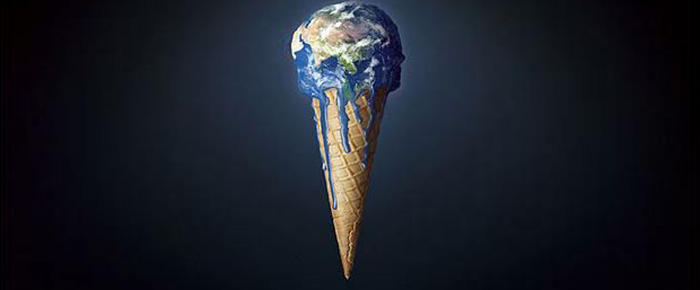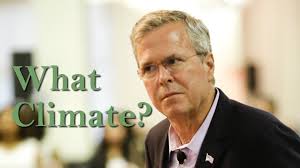
By Haddon Libby
“Any harm done to the environment is harm done to humanity.” These are words spoken Pope Francis as he stood before the United Nations last week on the ecological crisis facing the world.
Presidential candidate, Jeb Bush, immediately rejected the Pope’s words adding that “he’s not a scientist, he’s a religious leader.”
There are a couple of problems with Jeb’s comment. First, the Pope studied chemistry at university and worked as a chemist before joining the Catholic Church. As such, the Pope has a scientific background.
Second, the Pope’s position is backed by 97% of the scientific community. Of the 3% in the minority, the majority of that minority receive money from the companies that benefit from the status quo.
 Do you want to follow the thoughts and conclusions of the Pope and the scientific community or Jeb and partisan corporate interests?
Do you want to follow the thoughts and conclusions of the Pope and the scientific community or Jeb and partisan corporate interests?
Rather than denying scientific findings, Jeb and his partisan brothers would be much better off acknowledging climate change and stating that they do not want to address it for fear that it will hurt business, the economy and jobs. Maybe it’s my upbringing but an honest argument against action seems to be more compelling than denying scientific facts.
The Consensus Project, a peer review study of 12,000 papers written by scientists on climate change between 1991 and 2011, found that 97% of all papers concluded that humans were the primary cause of climate change. The second phase of that study sent over 2,000 of these papers to the scientific authors of these studies to have them rate these papers for continued accuracy and found that the 97% number held firm.
A separate survey of 3,146 earth scientists asked if these scholars thought that humans were a significant factor causing global warming. Eighty-two percent said ‘yes’ with 98% of climatologists saying ‘yes’.
The leading expert in the contrarian scientific community, Wei-Hock Soon, works at the Harvard-Smithsonian Center for Astrophysics. He has published numerous papers denying that climate change is man-made. The one problem with his published research is that he fails to disclose who pays for his studies. Greenpeace was able obtain this information through the Freedom of Information Act and found that Soon received $1.2 million from Exxon-Mobil, the Koch Foundation and others benefitting from polluting the environment. As reported by the New York Times, Soon’s failure to make these disclosures violates ethical guidelines.
Could these misleading research reports by scientists like Soon be the reason why 58% of Americans believe that humans DO NOT cause climate change? If we think back over time, corporate and government interests have sometimes misused scientific studies to get the public to believe in bad science.
As examples, the majority of scientists believe that genetically modified food is safe for consumption yet many are suspicious of these findings. Many smart people have similar doubts about vaccinations. If we go back to the 1950s, doctors were used in cigarette advertisements to tout the digestive benefit of a cigarette after a meal.
In the end, most of us fall into one of two camps: communitarians who believe in equal rights for all and don’t trust corporations and government to do the right thing without oversight, and; those who are more hierarchical and individualistic in nature who want the government to stay out of their lives and businesses. For the latter group, change is often very hard to deal with and something to fear as it will alter their worlds. Communitarians, on the other hand, may also fear the unknown but recognize that a fair, open and truthful world will ultimately be better for all.









































